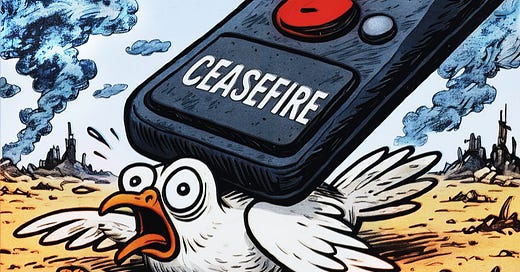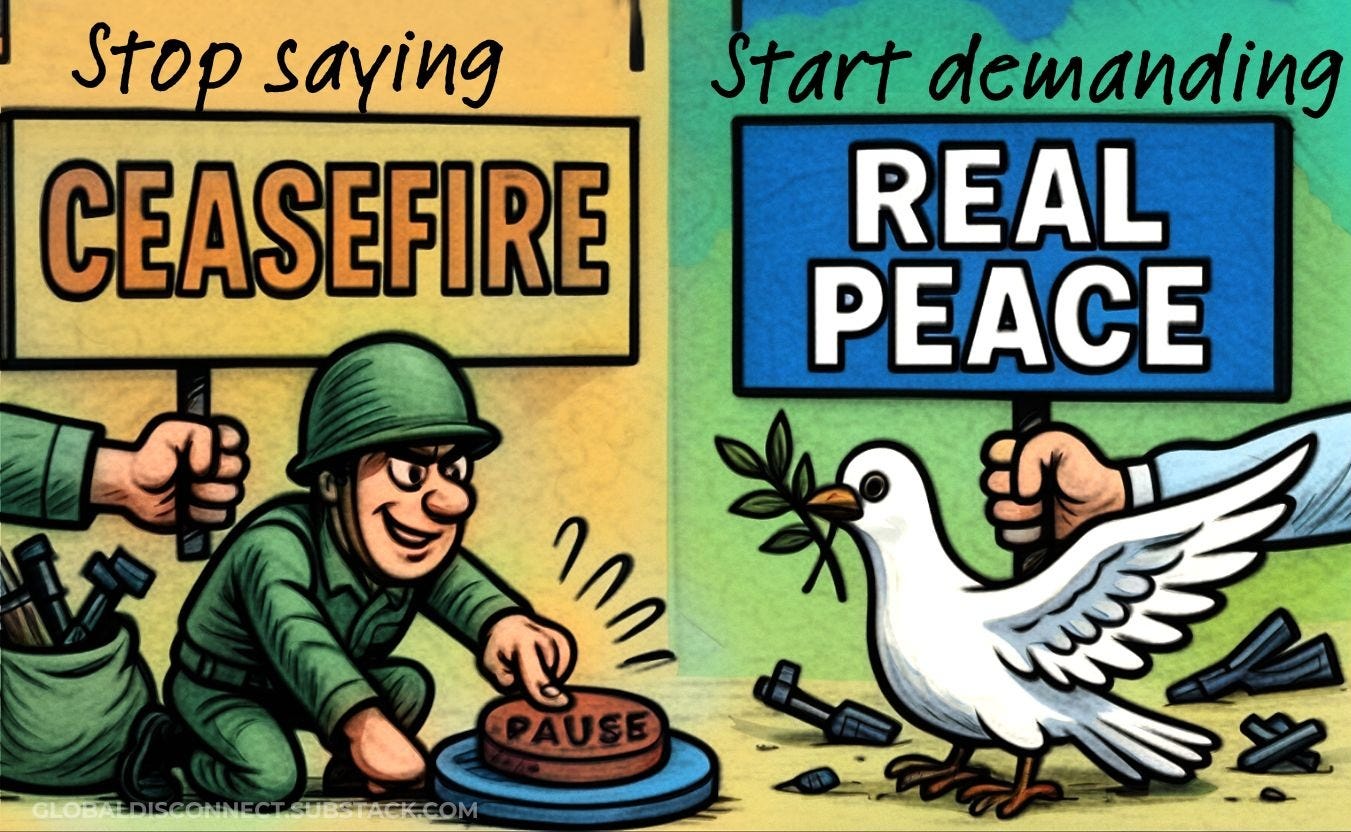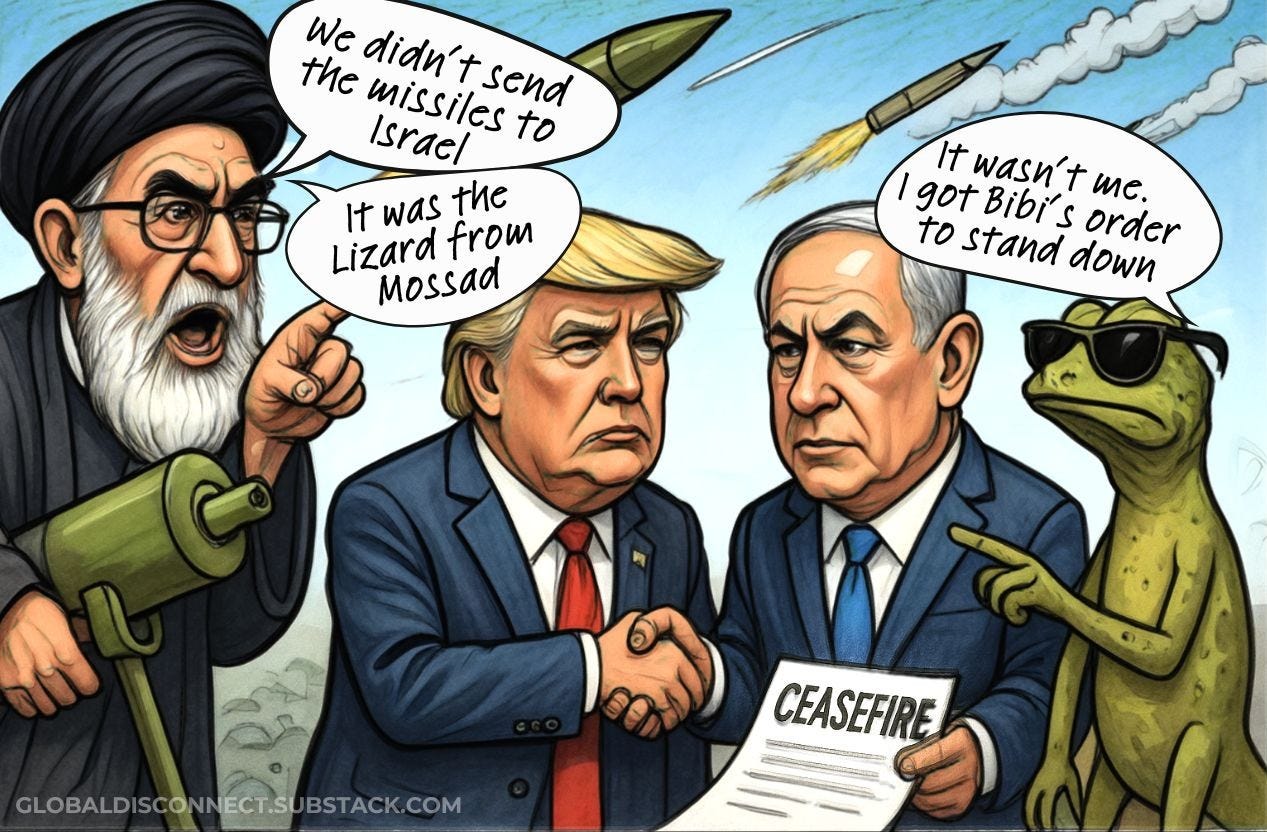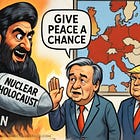“Ceasefires” are a Pause Button Crushing Peace, Not Stopping Wars
A ceasefire is not peace. It’s a pause button pressed by those who want to catch their breath, reload their weapons, and come back stronger.
The word “ceasefire” has become dangerously misused. It always meant a temporary pause in fighting — a space for diplomacy. Today, it’s a shield for aggressors, a delay tactic, and a false promise. Over and over, ceasefires have led not to peace, but to bigger wars.
A ceasefire is not peace. It’s a pause button pressed by those who want to buy time, who want to have some quiet during their political time. For the enemy it allows them to catch their breath, reload their weapons, and come back stronger. It always postpones the fight.
If we keep chasing ceasefires, we’re just setting the stage for the next war — bigger, bloodier, and more brutal.
History is littered with ceasefires that were sold as “peace” — pauses that allowed aggressors to reload, regroup, and return deadlier than before. After World War I, the 1918 armistice ended fighting, but the punitive Treaty of Versailles in 1919 sowed resentment and economic collapse in Germany, leading to Hitler and World War II. The Korean Armistice of 1953 ended combat but never brought peace; the peninsula remains divided, and North Korea more dangerous than ever.
In the Arab-Israeli conflict, ceasefires from 1949, 1967 to 1973 did nothing to resolve the fundamental refusal to accept Israel's existence. Only full peace treaties with Egypt (1979) and Jordan (1994) brought lasting calm. Gaza offers a tragic modern example: since Israel’s withdrawal in 2005, every ceasefire with Hamas—from 2008 to 2021—only allowed the terror group to rearm. On October 7, 2023, the illusion shattered with the massacre of 1,200 Israelis and the kidnapping of 251, showing where years of appeasement and “pauses” led.
This pattern repeats everywhere. Hezbollah violated the 2006 UN ceasefire, stockpiling over 100,000 rockets and joining Hamas in attacks on October 7. Despite Israeli responses, Hezbollah remains a looming threat waiting to grow again. In the Caucasus, a 1994 ceasefire froze the Nagorno-Karabakh conflict for decades, only for war to return with greater brutality in 2020. Ukraine’s 2014 Minsk agreements were hailed as peace, but Russia spent eight years preparing for its full-scale 2022 invasion. In Sudan, ceasefires during the Darfur genocide and ongoing civil wars are routinely broken, offering only brief interludes before more bloodshed. Across regions and decades, the lesson is clear: ceasefires that don’t resolve the core conflict don’t prevent war — they postpone it.
Last night, President Trump announced a ceasefire between Israel and Iran — a declaration surrounded by more confusion than clarity, a complete riddle about how exactly the fight will end and when.
Initial statements suggested a ceasefire around 7:00 AM local Israeli time. Others claimed 3:30 AM. The Foreign Minister of the Islamic Republic said 4:00 AM. But the one clear fact is this: just minutes before 7:00 AM, Iran launched multiple rocket barrages targeting civilians, murdering at least four innocent people in Be’er Sheeba and injuring dozens.
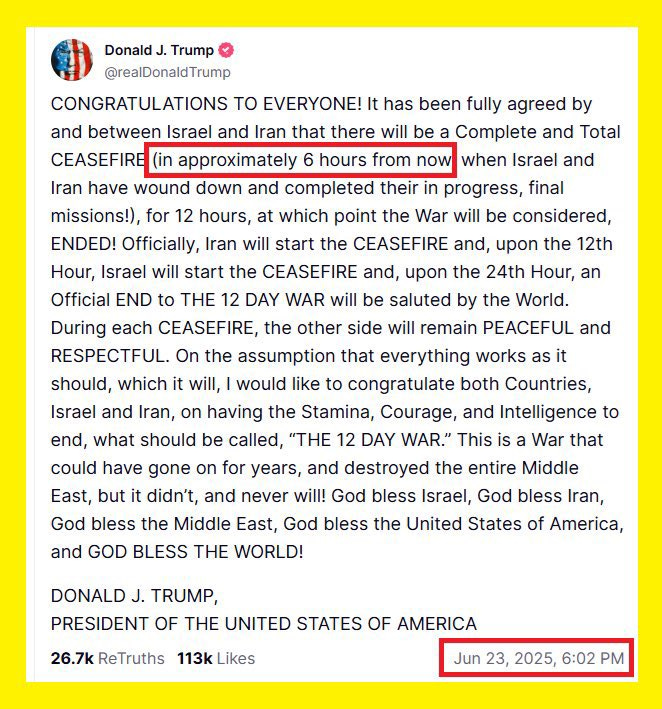
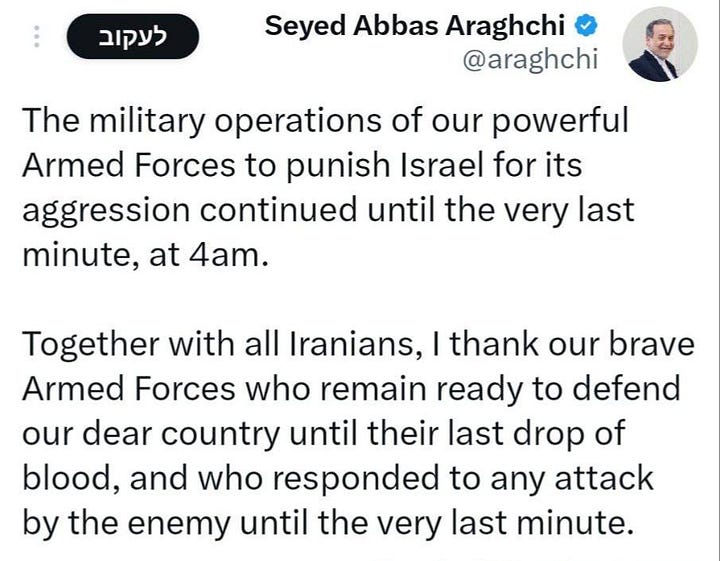
Now, Israel is currently discussing a response to the murder of the four in Be’er Sheva. President Trump tweets the “ceasefire” is in effect and not to “violate it.” He did say “please.” This episode is just the latest perfect illustration on why ceasefires don’t bring peace — they breed more uncertainty and emboldens aggressors and for Iran, it just allows them to wait for another chance to attack.
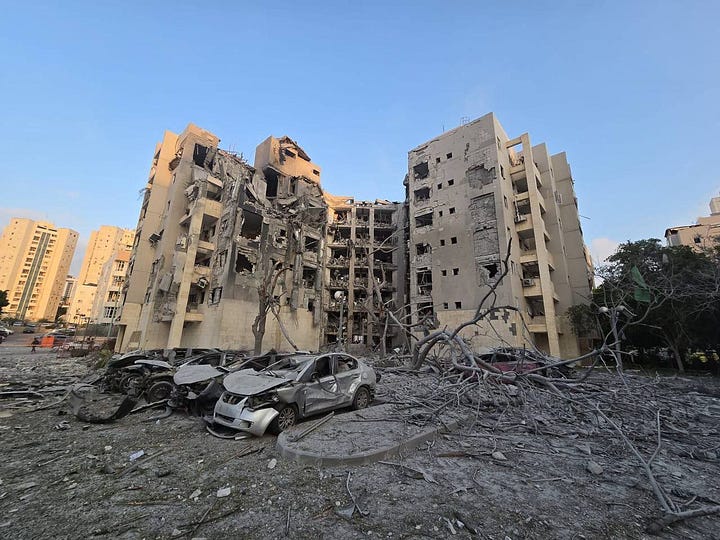
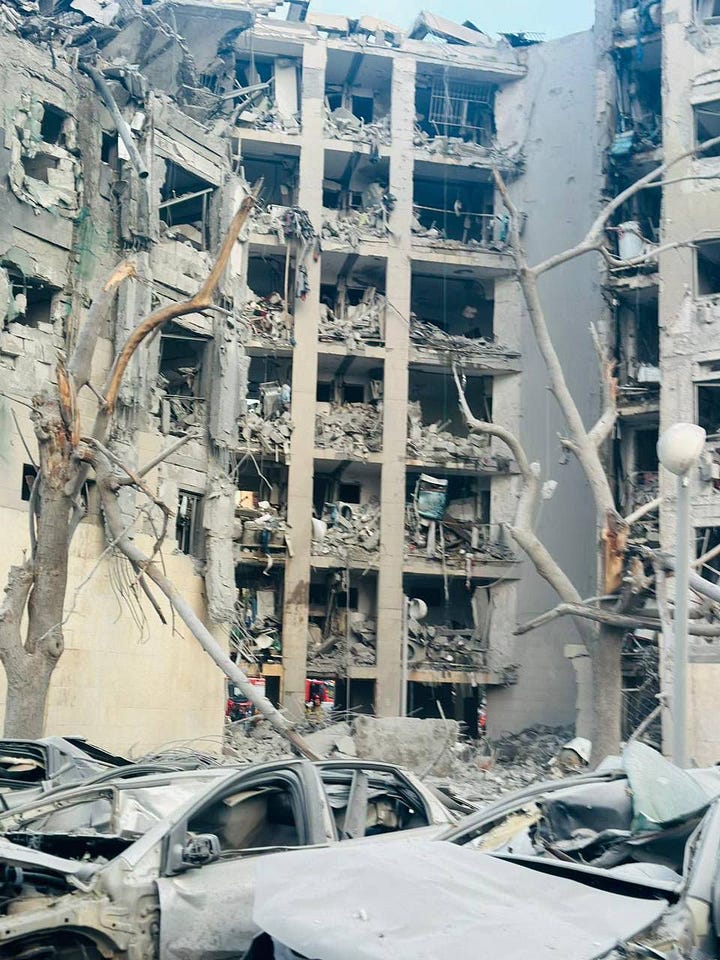
Here’s the truth: A ceasefire is what you demand when you’re afraid of headlines.
Peace is what you fight for when you’re serious about ending bloodshed.
Ceasefires are tactical.
Peace is transformational.
Stop saying “ceasefire.”
Start demanding real peace.
The world doesn’t need more temporary pauses that allow killers to reload. It needs the courage to demand permanent solutions — disarmament, recognition, accountability. We need moral clarity.
It’s time to stop pretending a pause is a solution. Real peace demands more than “silencing the guns” — it demands courage, truth, and the hard work of ending the fight for good.
True peace comes when one side admits it has lost, acknowledges that the fight is over, and is ready to move on. Without this fundamental acceptance, ceasefires only delay the inevitable next conflict.
Peace in the Middle East will come only when the Islamic Republic regime and its proxies finally fall, and when the region accepts that Israel — and the Jewish people — are here to stay.
While the Iranian Supreme Leader already broke the ceasefire and fires missiles at Israel, he absurdly claims he didn’t do it, probably it was the mossad lizard in sunglasses. What is the other choice?

